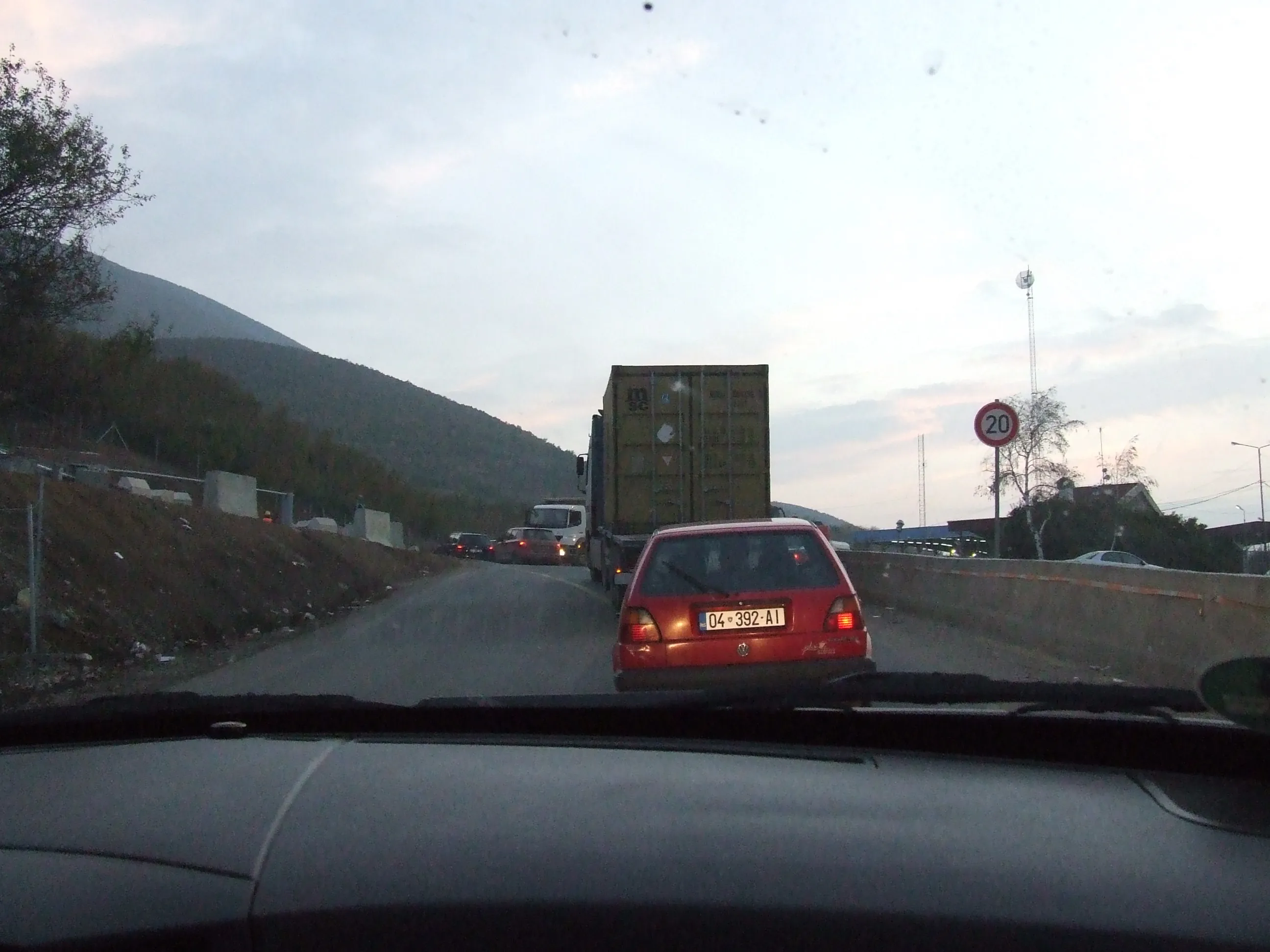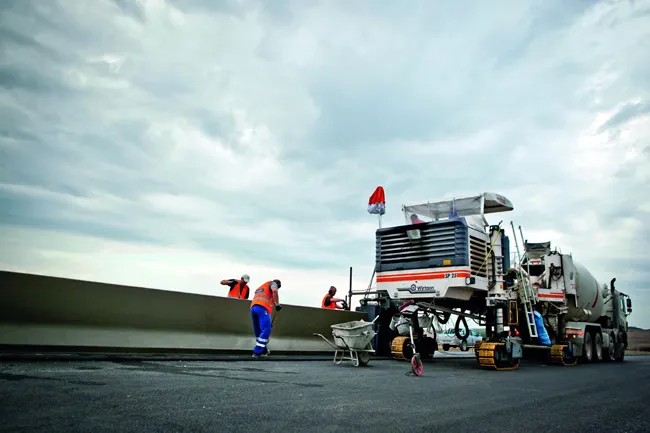On 18th and 19th September, the Association of Consulting Engineers Bosnia and Herzegovina (UKI BH), a member of the ERF, organised its 4th Congress on Roads, together with the Regional Cooperation Council.
The UKI BH brings together stakeholders involved in consulting activities aimed at supporting the companies’ interests and improving the efficiency of the activities developed according to the international rules and regulations.
The Regional Cooperation Council promotes the reciprocal cooperation, as
December 8, 2014
Read time: 3 mins

On 18th and 19th September, the Association of Consulting Engineers Bosnia and Herzegovina (UKI BH), a member of the ERF, organised its 4th Congress on Roads, together with the Regional Cooperation Council
The UKI BH brings together stakeholders involved in consulting activities aimed at supporting the companies’ interests and improving the efficiency of the activities developed according to the international rules and regulations.
The Regional Cooperation Council promotes the reciprocal cooperation, as well as the integration of south-east Europe at European and Euro-Atlantic level in order to facilitate the development of the region for the benefit of the citizens.
The conference represented an ideal platform for discussing the planning and development of the road transport system: its management, construction, maintenance, as well as environment protection, road safety and finally the financing of the transport sector. Other topics have been addressed, such as the current condition of the road infrastructure in Bosnia Herzegovina, and in the3287 EU, and the future development of the road infrastructure in the country.
This conference took place under the auspices of the South East Europe 2020 Strategy. The main objective of this strategy is the improvement of the life conditions of the citizens in the area, focusing on the common interest of boosting competitiveness and development, in accordance with the vision of the Europe 2020 strategy. It also includes the objective of creating up to 1 million new jobs by 2020.
Consequently, employment should grow between 39 and 44%, the total trade balance should at least double (from €94 - €210 billion), the per capita GDP should reach 44% of the EU average one (against 36% now) and some 300,000 highly qualified jobs should be created.
7575 ERF Director General, Christophe Nicodème, had been invited to deliver an opening speech. This speech and presentation focused on the vital importance of roads for the socio-economic development in the Balkans area and the necessity to improve the road network in the region.
The main objective, shared by most of the participants, is the creation of the so-called ‘Adriatic- Ionian Corridor Motorway’, which should connect all the countries along the coast, from Italy to Greece, through Slovenia, Croatia, Bosnia & Herzegovina, Montenegro and Albania.
Christophe Nicodème expressed the formal support of the ERF to this initiative and announced the official commitment of the ERF, together with the National Road Associations of the region (UKI BH and Via Vita – HR) to promote the creation of a dedicated ‘Core Task Force’ for starting a coordinated plan for a better cooperation between the countries of south-east Europe.
First steps will be open discussions between representatives of the National Road Associations, together with the respective Ministries of Transport, the national administrations and the political decision-makers in order to establish priorities in the development of more integrated road network planning and connection in the region.
Final objective remains the creation of the Adriatic – Ionian Motorway in the future, but in the meantime, this Task Force, with the support of the ERF, will contribute to a closer dialogue between the countries of the area.
After the opening session, Christophe Nicodème also participated in a round-table debate on the topic of ‘Adriatic – Ionian Motorway’. During this debate, representatives from different countries of the region had the opportunity to present some essential topics and issues related to the future Motorway.
The UKI BH brings together stakeholders involved in consulting activities aimed at supporting the companies’ interests and improving the efficiency of the activities developed according to the international rules and regulations.
The Regional Cooperation Council promotes the reciprocal cooperation, as well as the integration of south-east Europe at European and Euro-Atlantic level in order to facilitate the development of the region for the benefit of the citizens.
The conference represented an ideal platform for discussing the planning and development of the road transport system: its management, construction, maintenance, as well as environment protection, road safety and finally the financing of the transport sector. Other topics have been addressed, such as the current condition of the road infrastructure in Bosnia Herzegovina, and in the
This conference took place under the auspices of the South East Europe 2020 Strategy. The main objective of this strategy is the improvement of the life conditions of the citizens in the area, focusing on the common interest of boosting competitiveness and development, in accordance with the vision of the Europe 2020 strategy. It also includes the objective of creating up to 1 million new jobs by 2020.
Consequently, employment should grow between 39 and 44%, the total trade balance should at least double (from €94 - €210 billion), the per capita GDP should reach 44% of the EU average one (against 36% now) and some 300,000 highly qualified jobs should be created.
The main objective, shared by most of the participants, is the creation of the so-called ‘Adriatic- Ionian Corridor Motorway’, which should connect all the countries along the coast, from Italy to Greece, through Slovenia, Croatia, Bosnia & Herzegovina, Montenegro and Albania.
Christophe Nicodème expressed the formal support of the ERF to this initiative and announced the official commitment of the ERF, together with the National Road Associations of the region (UKI BH and Via Vita – HR) to promote the creation of a dedicated ‘Core Task Force’ for starting a coordinated plan for a better cooperation between the countries of south-east Europe.
First steps will be open discussions between representatives of the National Road Associations, together with the respective Ministries of Transport, the national administrations and the political decision-makers in order to establish priorities in the development of more integrated road network planning and connection in the region.
Final objective remains the creation of the Adriatic – Ionian Motorway in the future, but in the meantime, this Task Force, with the support of the ERF, will contribute to a closer dialogue between the countries of the area.
After the opening session, Christophe Nicodème also participated in a round-table debate on the topic of ‘Adriatic – Ionian Motorway’. During this debate, representatives from different countries of the region had the opportunity to present some essential topics and issues related to the future Motorway.








